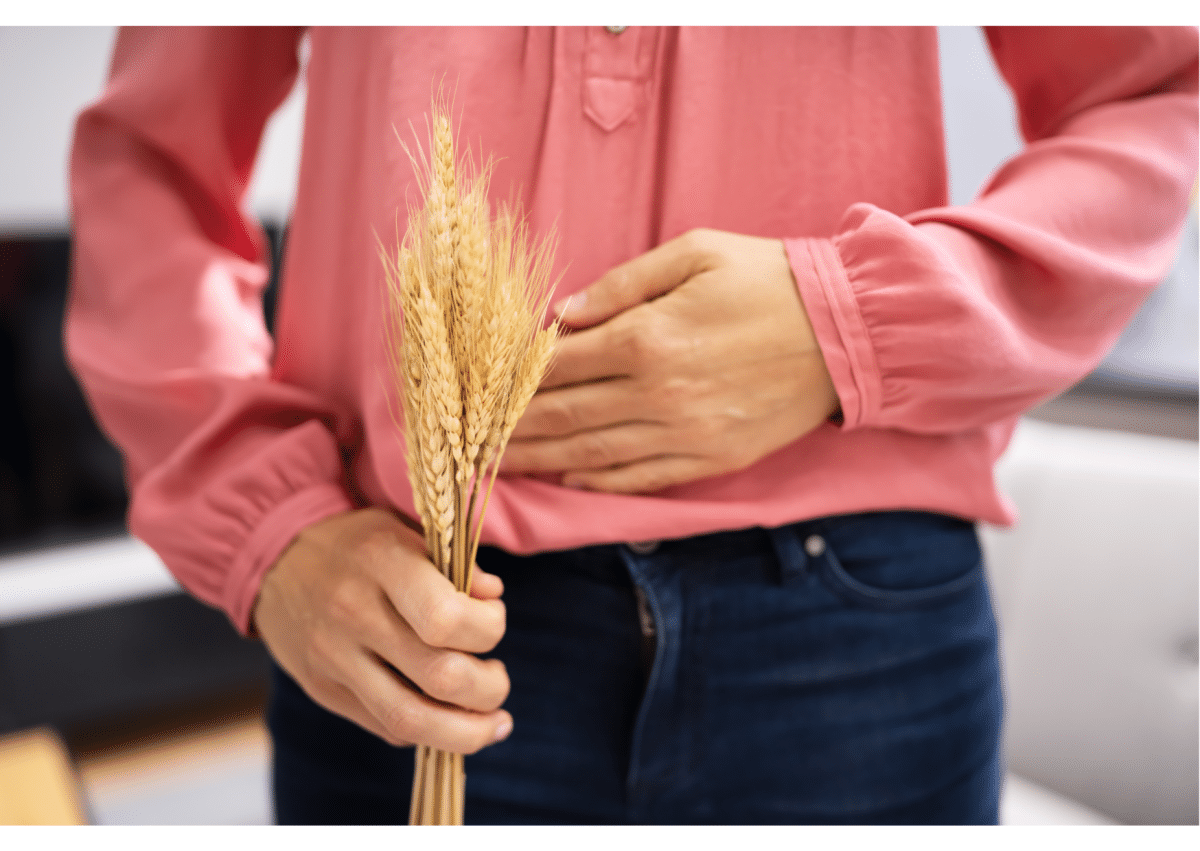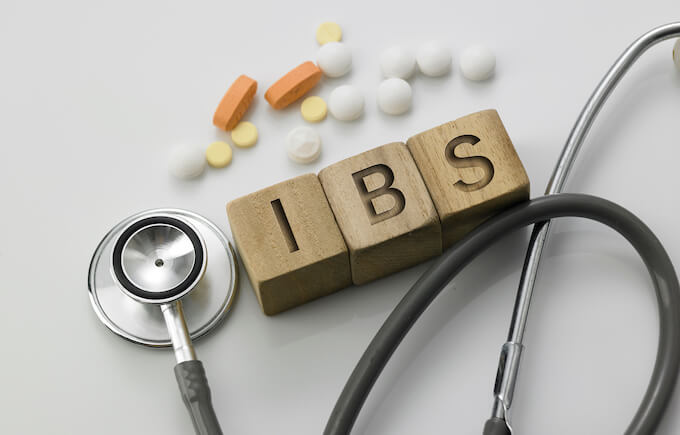IBS vs Celiac: what is the difference?
- Dietary Advice (non Low FODMAP)
IBS vs. celiac disease, here’s what you need to know.
Firstly, it’s easy to confuse IBS and celiac disease as they can have similar symptoms.
However, it is vital that you understand the difference because each condition is managed differently.
In this article, we will go through IBS and celiac disease to help you better understand the differences between the two conditions.

What is celiac disease?
Celiac disease is an autoimmune condition, which means that your immune system will attack the lining of the small intestine when gluten is ingested (1).
In individuals with celiac disease, the immune system responds to when gluten is ingested. Gluten is a protein found in different foods. Namely, wheat, barley, and rye.
What is IBS?
IBS is a common functional bowel condition that affects the digestive system. The symptoms of IBS include bloating, abdominal pain, wind and abnormal bowel patterns.
Frustratingly, the cause of IBS is unknown as research determines that the cause of IBS is multifactorial and differs between individuals.
How is celiac disease and IBS different?
Celiac disease and IBS are two different conditions.
The first difference between the two conditions is how they would be diagnosed. There is no one test to show whether you have IBS or not. But there are tests to diagnose celiac disease.
In celiac disease, the trigger for symptoms is gluten but in IBS the triggers vary widely and do not include gluten.
Although both conditions cause a range of digestive symptoms, celiac disease has additional symptoms that we would not see in someone with IBS.
These symptoms include osteoporosis and malabsorption leading to weight loss and anemia. This is why someone with celiac disease needs high doses of calcium but someone with IBS does not.
If you have uncontrolled celiac disease, there is also a link to small bowel cancer. But IBS has no link to an increased risk of cancer.
And finally, the medical management of the two conditions is different.
IBS would typically be managed by a registered dietitian after diagnosis compared with celiac disease which would need both life-long input from doctors and dietitians.
What are the symptoms of IBS vs Celiac disease?
| Symptoms | IBS | Celiac Disease |
| Abdominal pain | X | X |
| Poor bone health | X | |
| Bloating | X | X |
| Mouth ulcers | X | |
| Fatigue | X | X |
| Joint pain | X | |
| Headache | X | |
| Constipation | X | X |
| Diarrhoea | X | X |
| Weight loss | X |
Is it possible to have both celiac disease and IBS?
If you have celiac disease, you might complain of IBS-type symptoms and you can get both these conditions at the same time.
Symptoms of IBS are seen in 38% of patients with celiac disease, and the prevalence of celiac disease is 4.1% in individuals with IBS (2).
It is not clear why we see these conditions being linked but it is likely that IBS occurs in people with celiac diseases due to a period of having a disrupted digestive system.
The higher prevalence of celiac in people who have IBS may be due to a higher level of testing than the general population.
Likewise you can develop celiac disease after having IBS. Which is why you must go to the doctor if your symptoms change or worsen.
If you have celiac disease and have removed gluten from your diet but still have gastrointestinal symptoms you must speak with your doctor about the following possibilities;
- IBS
- Getting support with checking your diet
- Non responsive celiac disease
- Refractory celiac disease
How do you know if you have celiac disease or IBS
You might want to take the ‘Do I have IBS?’ – 10 quiz questions to assess your symptoms.
And, you can also take this free online celiac disease self-assessment.
But ultimately, you don’t know what you have without going to the doctor and having blood tests to rule out celiac disease.

Why do these two conditions get mixed up?
Easily done!
Both IBS and celiac disease impact the gastrointestinal system. These two conditions can cause similar symptoms, such as bloating, gas, abdominal pain, and diarrhea.
There is also a lot of misinformation about gluten free diets and IBS.
How are the two conditions diagnosed?
Often, those with celiac disease can get misdiagnosed as having IBS, which doesn’t resolve any symptoms and delays proper treatment.
IBS is only diagnosed once other conditions, including celiac disease, bowel cancer and inflammatory bowel disease, have been excluded. IBS is diagnosed using the Rome lll criteria (3).
You can find out how IBS is diagnosed in our other post: ‘how to get an IBS diagnosis’
Celiac disease can be diagnosed by checking these two blood markers: immunoglobulin A (IgA) and IgA Tissue transglutaminase antibody (tTG) (4).
Further testing may be required such as a biopsy. A biopsy is only done if necessary, depending on your blood test results.
What is the treatment for IBS vs. Celiac?
It is important to note that the treatments for these two conditions differ despite their overlap in symptoms.
Treatment for celiac disease requires lifelong adherence to a gluten-free diet.
Whereas IBS requires a more holistic approach using things like the low FODMAP diet to identify food triggers, supplements, exercise, sleep and mental health optimisation.
Does a gluten-free diet help with IBS?
There are a few claims that going gluten-free helps with symptoms of IBS. However, this is not advised.
Going gluten-free may inadvertently reduce your FODMAP intake due to many gluten containing foods also containing FODMAPs. As a result you may notice a reduction in your IBS symptoms.
However, a gluten free diet is not a typical approach to your IBS. A low FODMAP diet is needed in some people with IBS to determine what food triggers IBS symptoms.
What is the link between gluten and IBS?
Some people find that gluten makes IBS symptoms worse. Let’s take a look at this now.
Many gluten-containing foods are known to contain fructans (a type of FODMAPl).
Fructans are shown to be related to symptoms in those with IBS, rather than the gluten itself (5).
After completing a low FODMAP diet, some people with IBS may need to restrict their intake of fructans and therefore consume some gluten free products.
Although, you would not need to adhere to a strict gluten free diet to achieve this.
It’s important to note that pre-diagnosis for IBS and celiac disease requires you to be eating gluten for the celiac screening test. If you removed gluten from the diet, this test will likely come back incorrect.
Summary
We now know that IBS and celiac disease are two completely different conditions. Celiac disease is screened for when getting an IBS diagnosis, to avoid misdiagnosis.
IBS and celiac disease share some triggers and symptoms, so the two conditions can get confused. Ruling out celiac disease is important before testing your tolerance of gluten containing FODMAP foods.
If you have celiac disease or IBS, it is good to know what triggers a worsening of your symptoms to improve your quality of life long term.